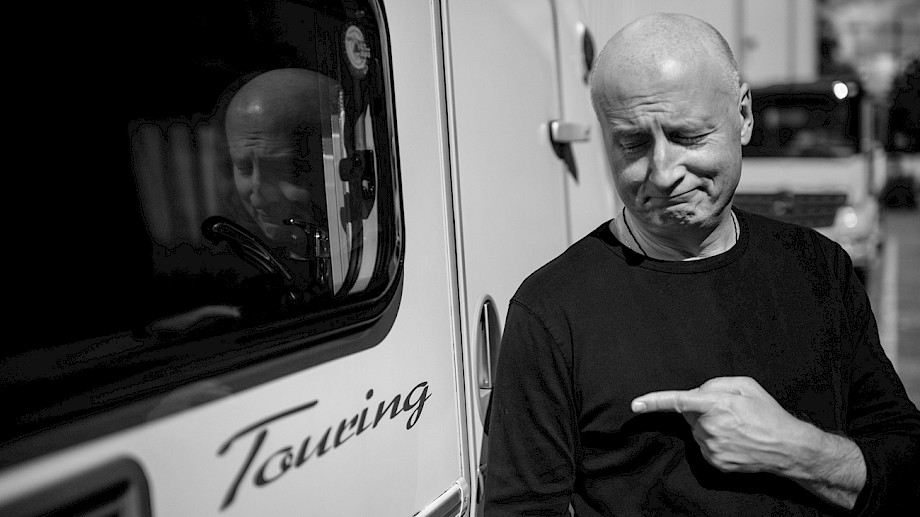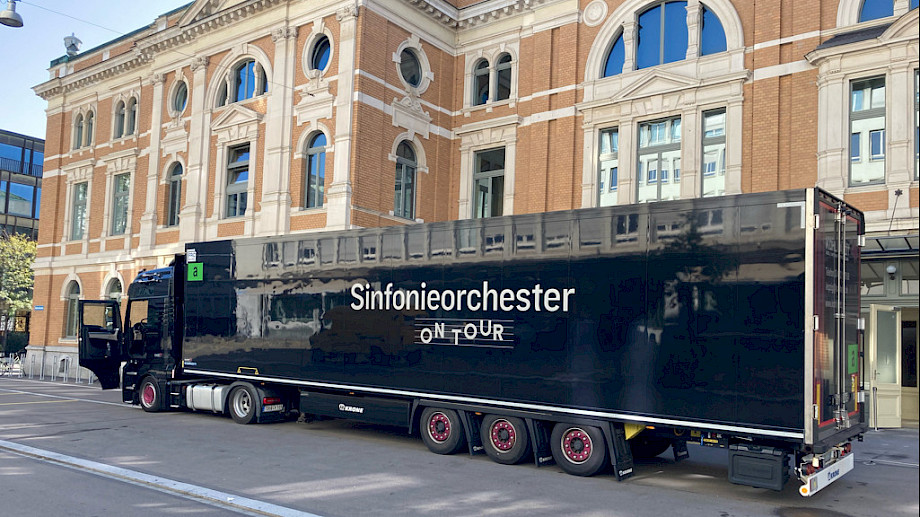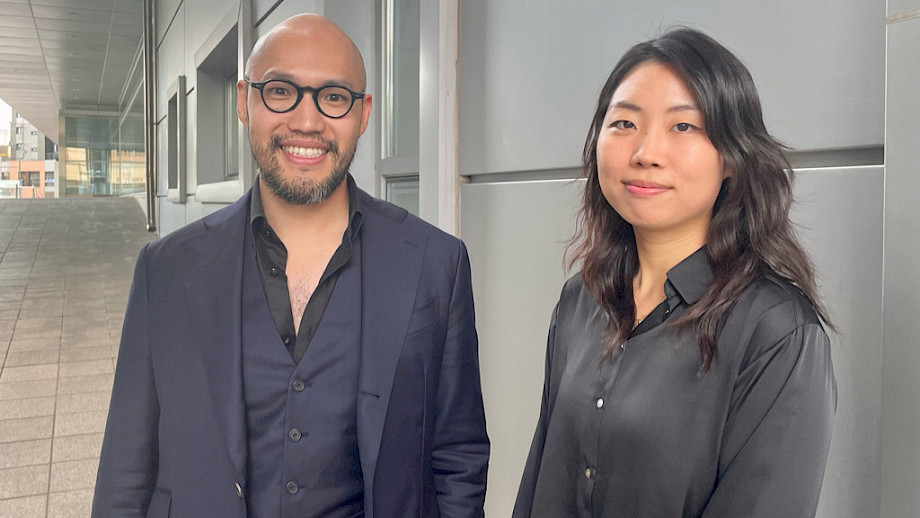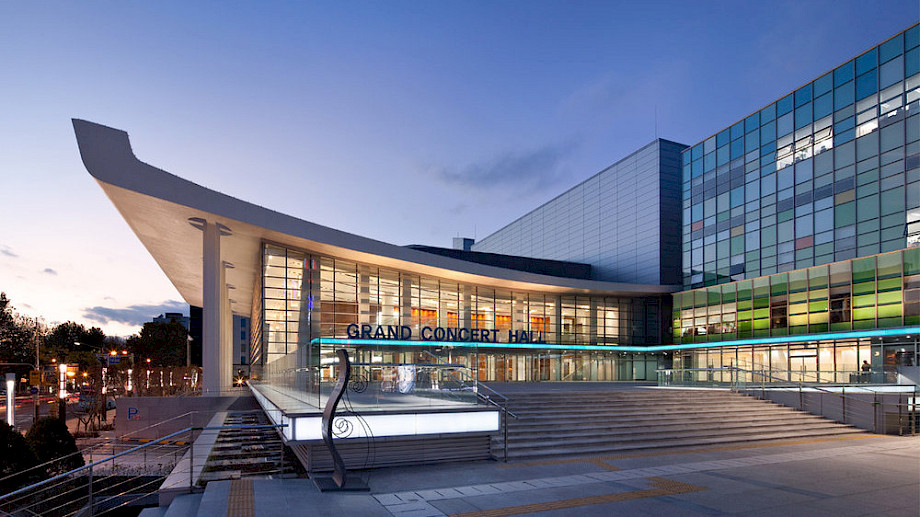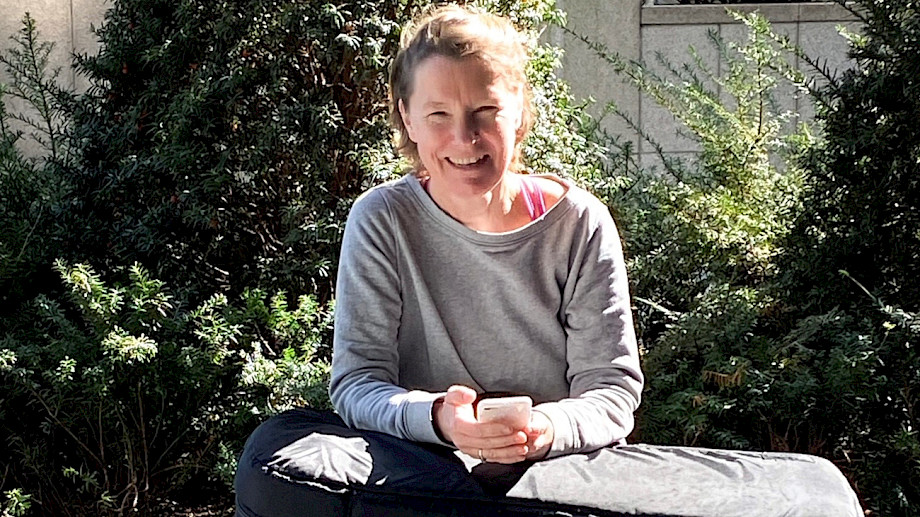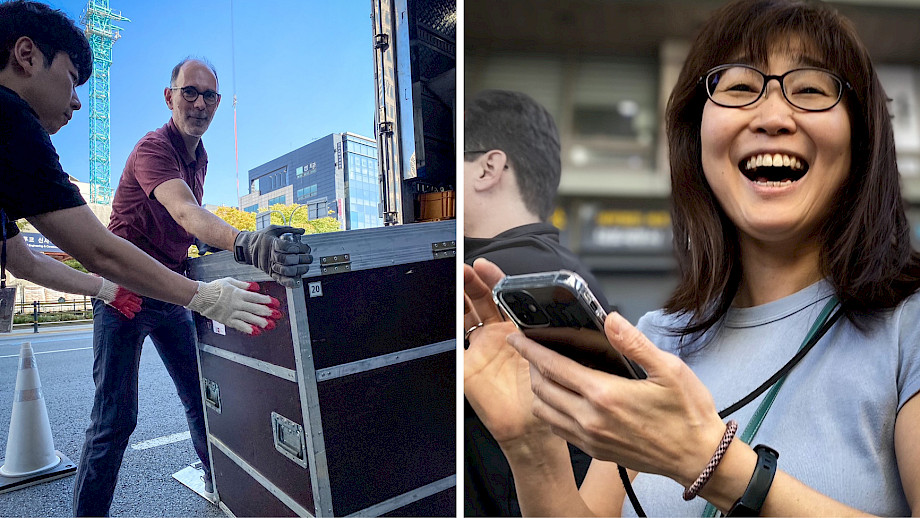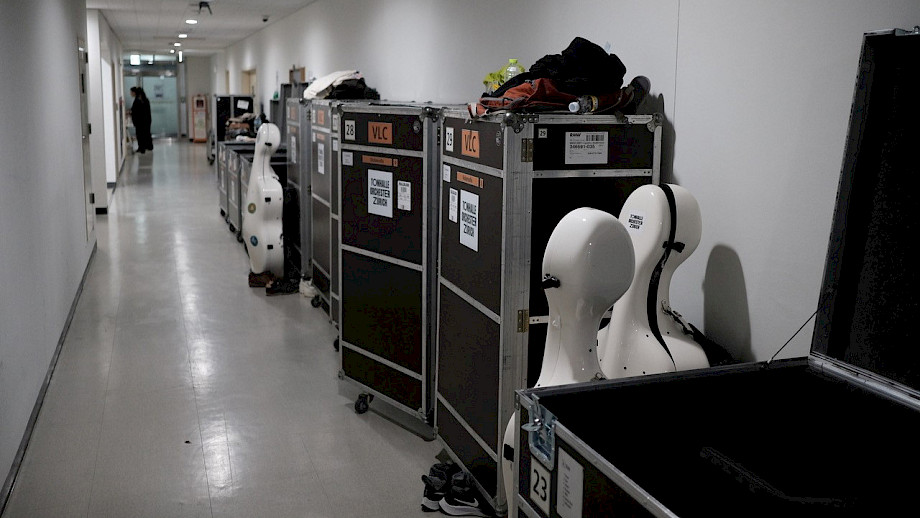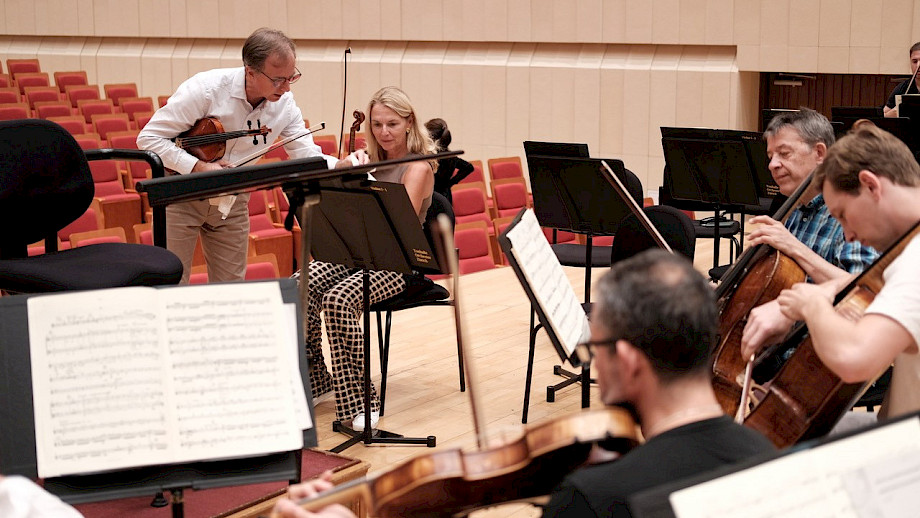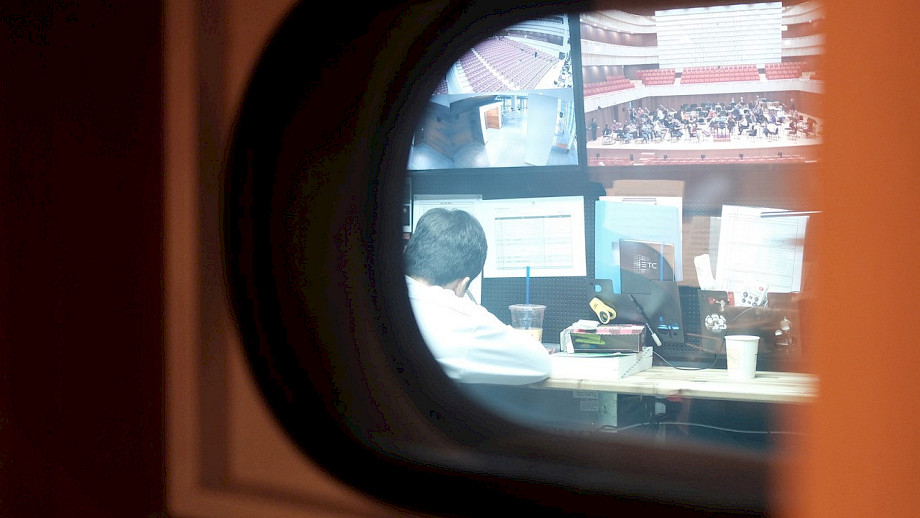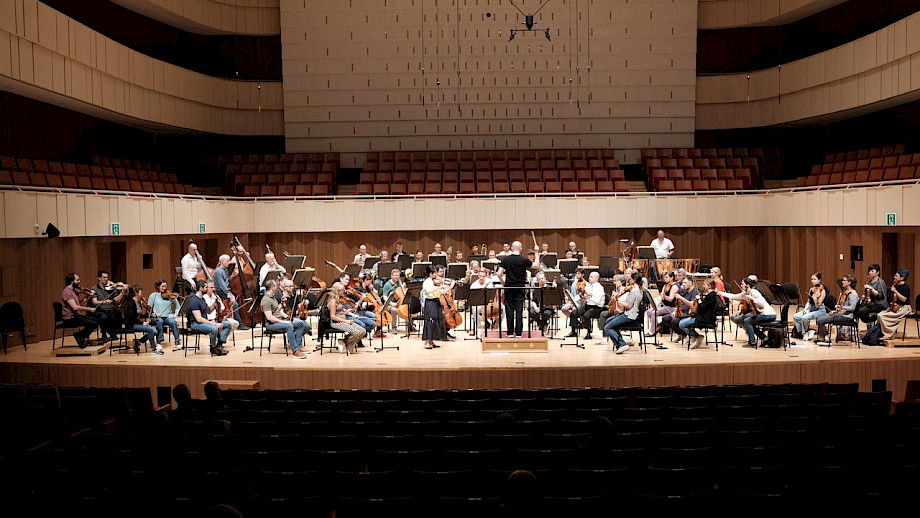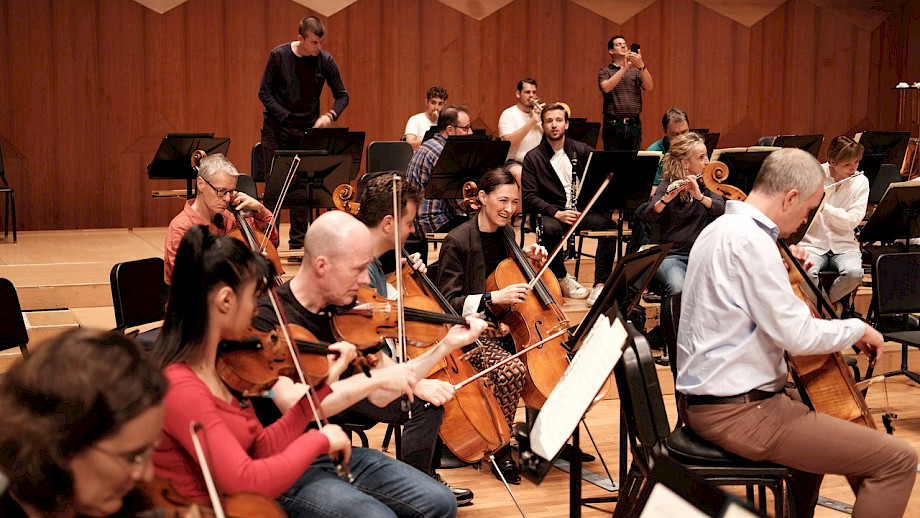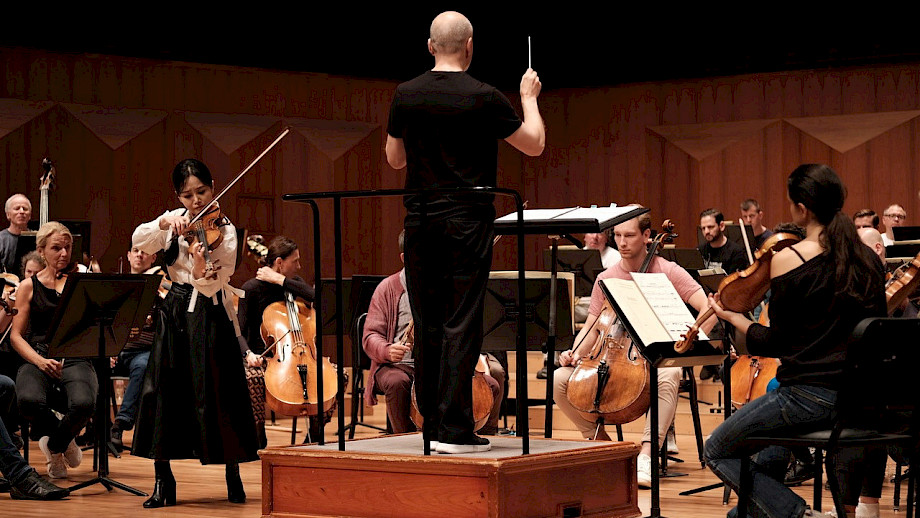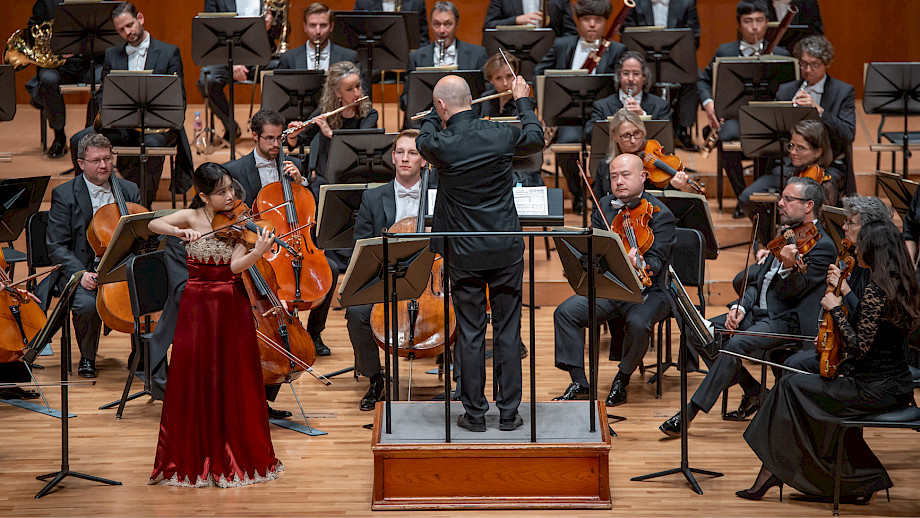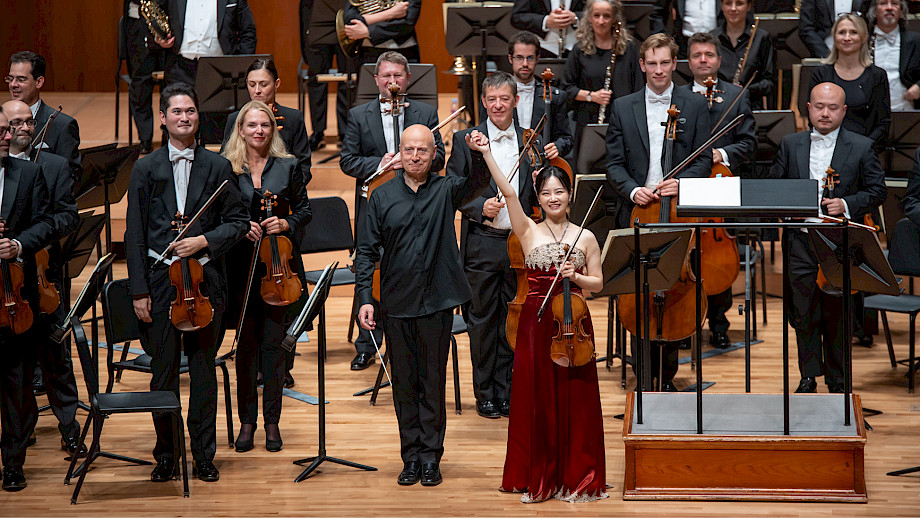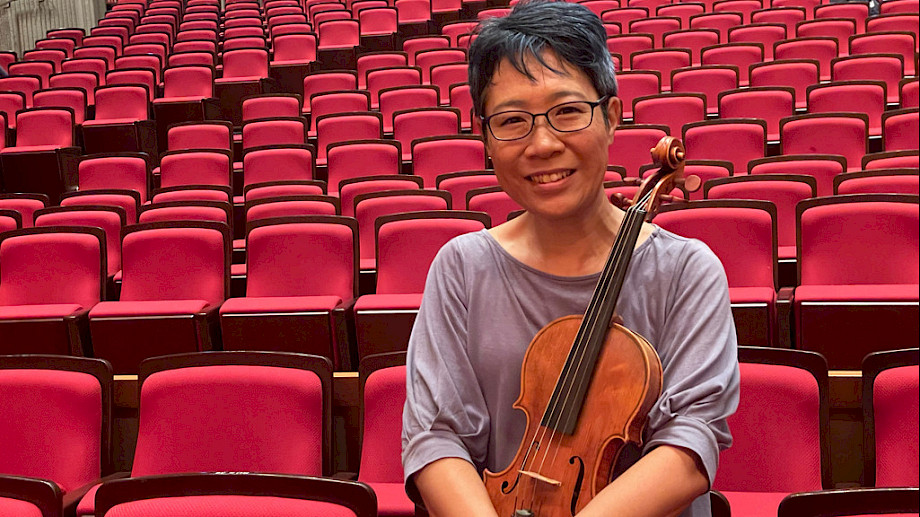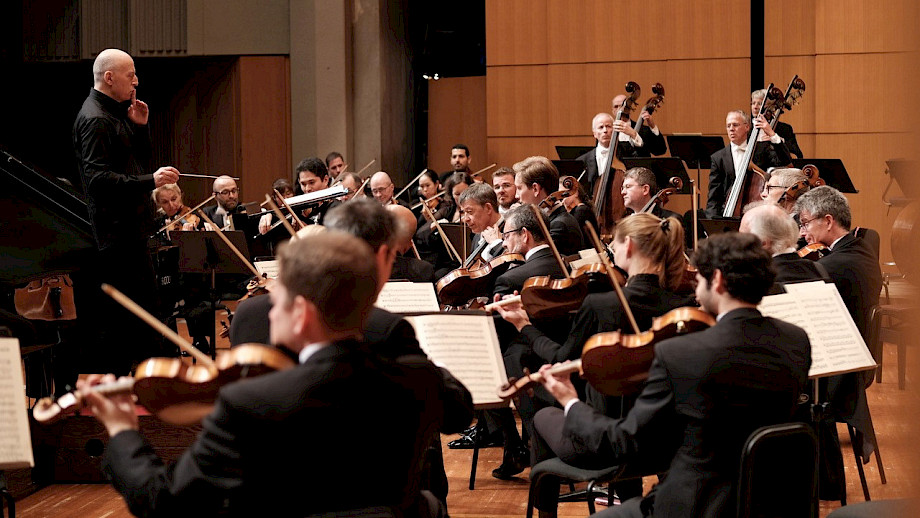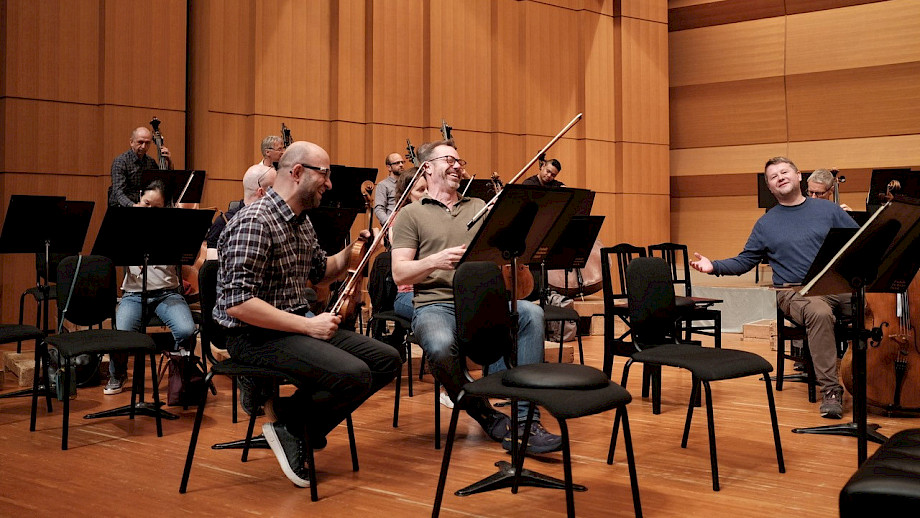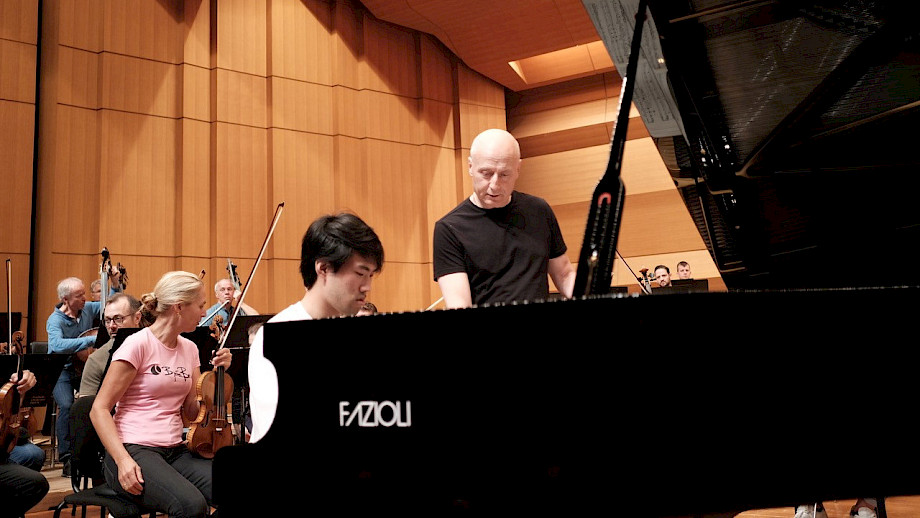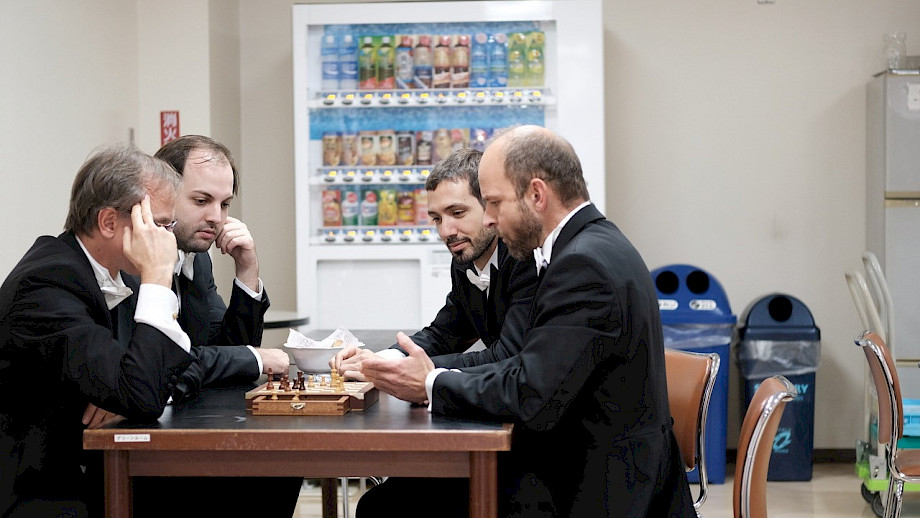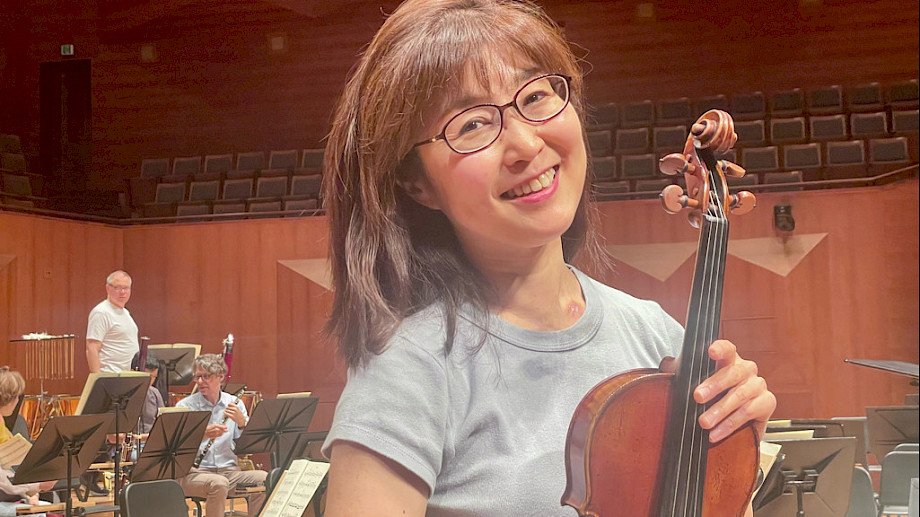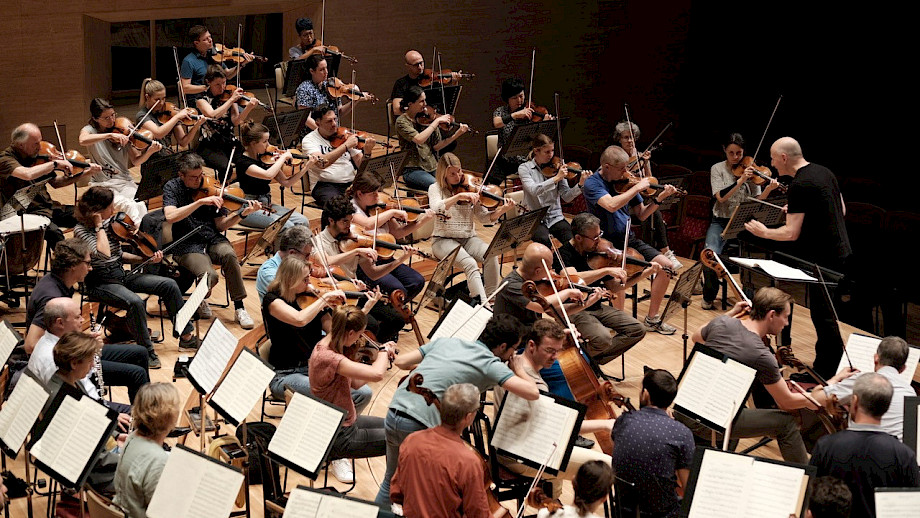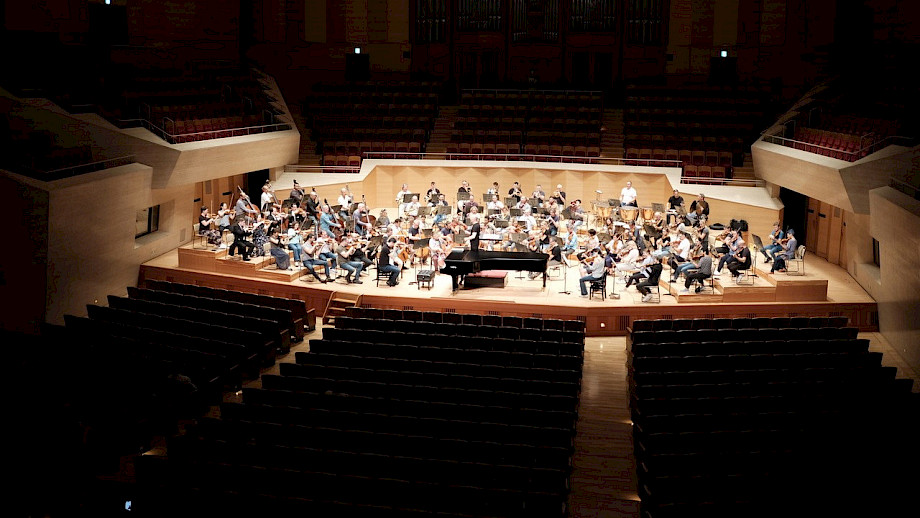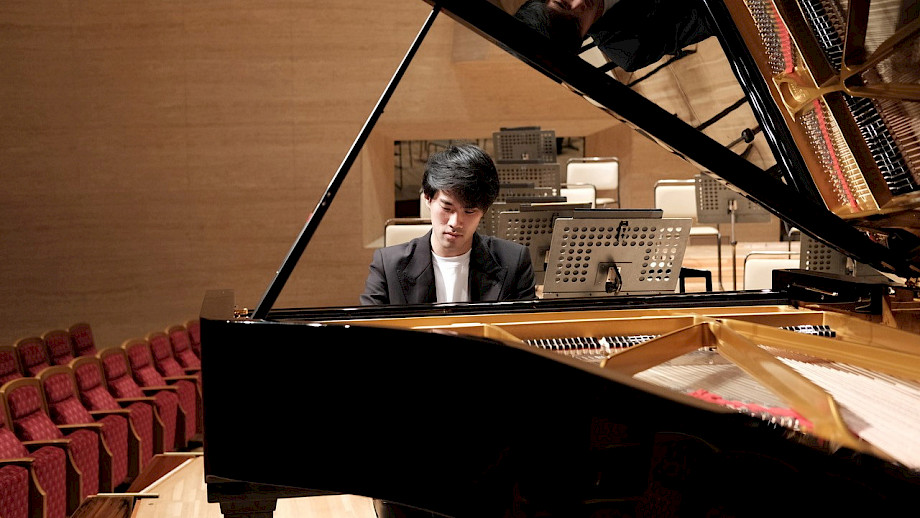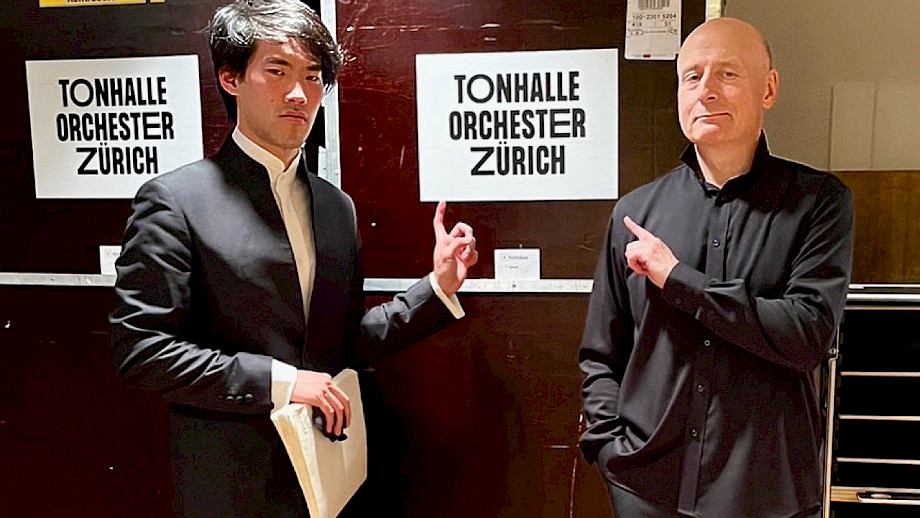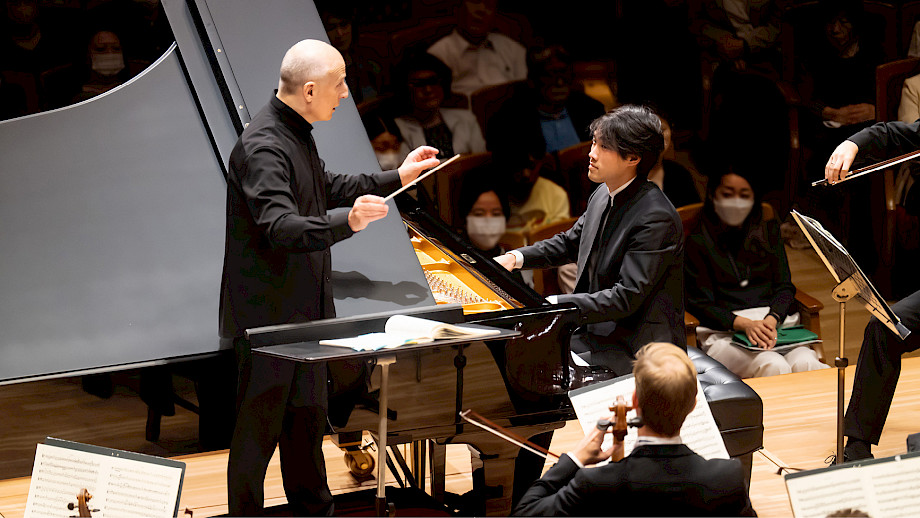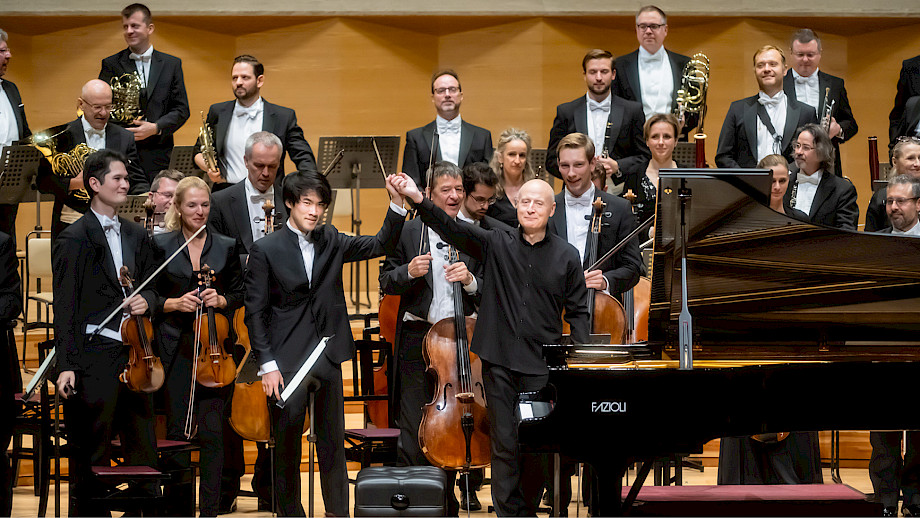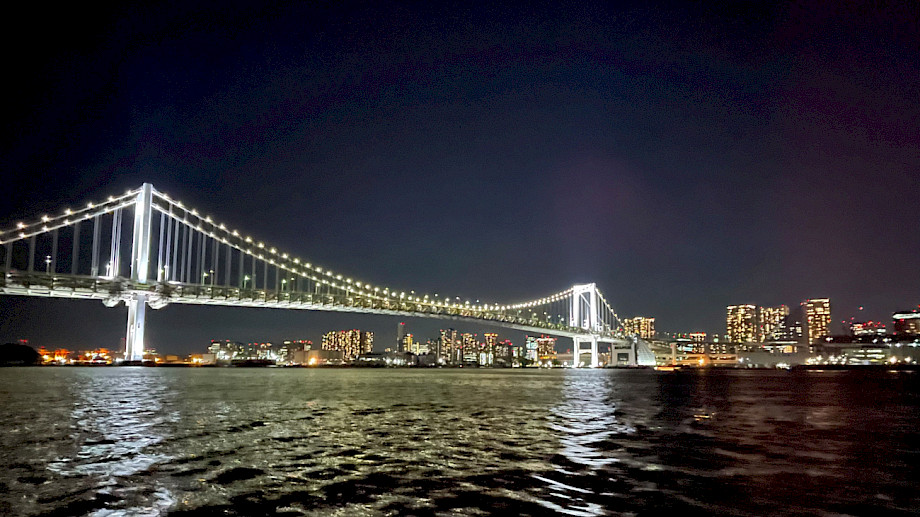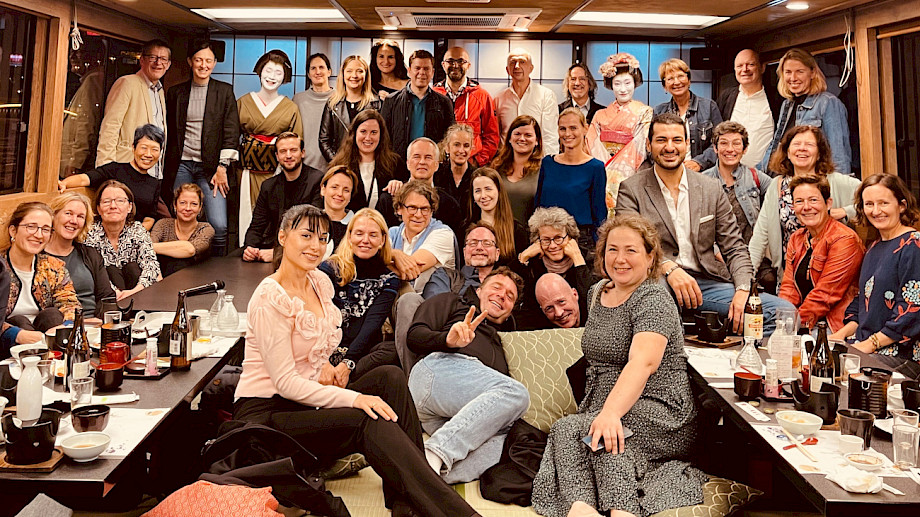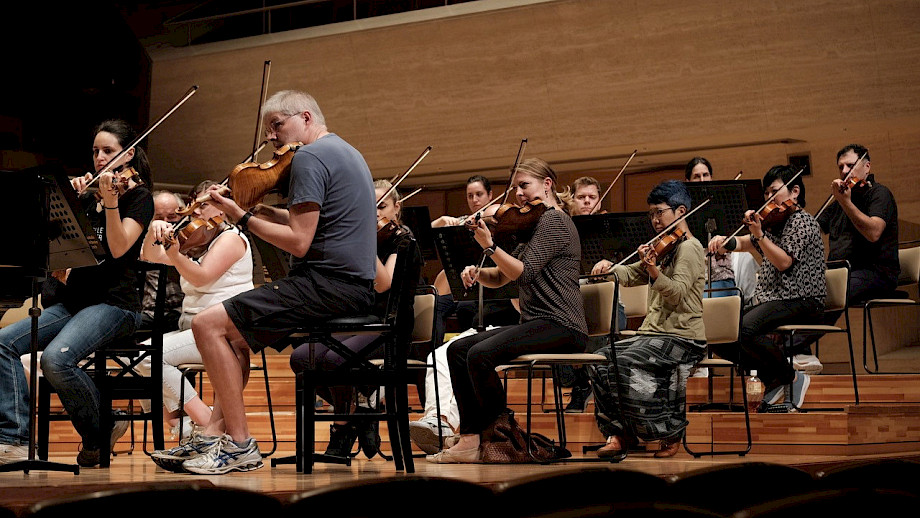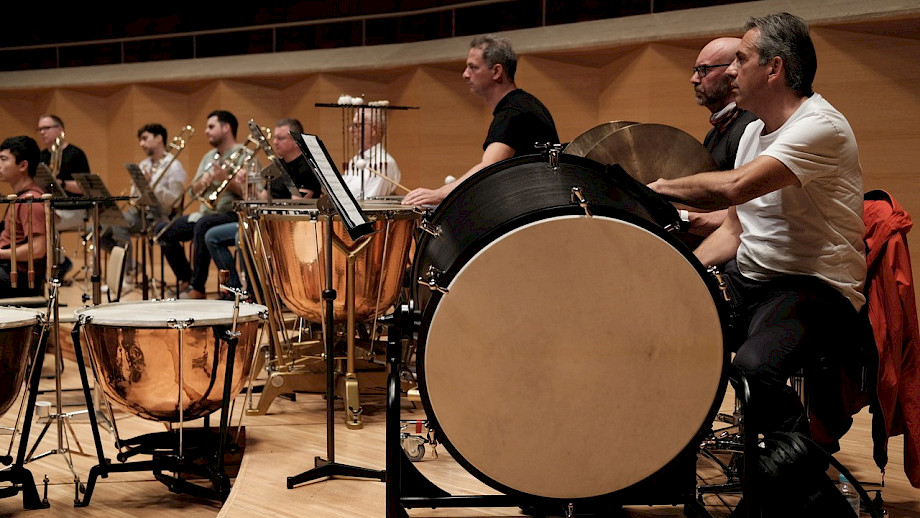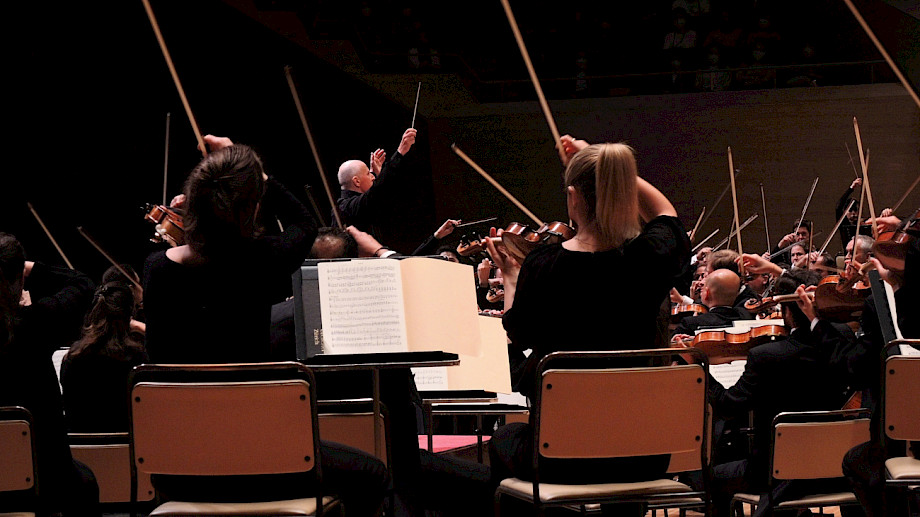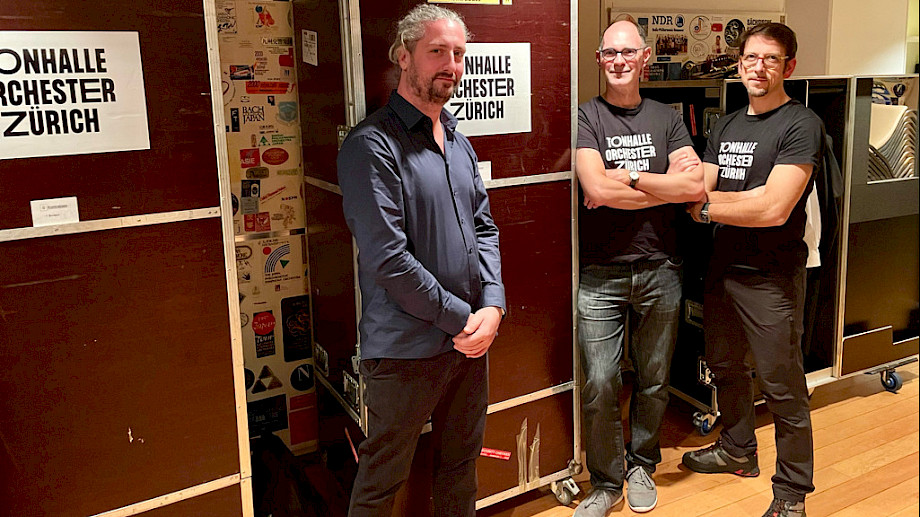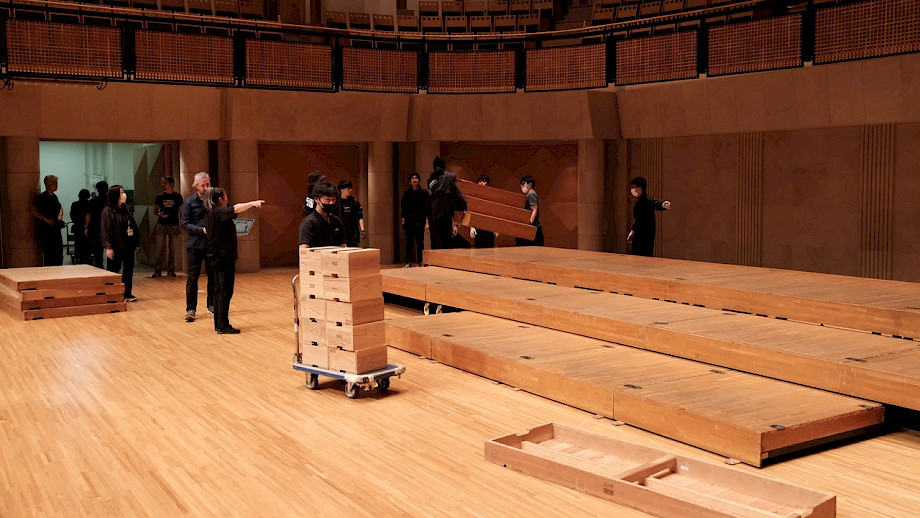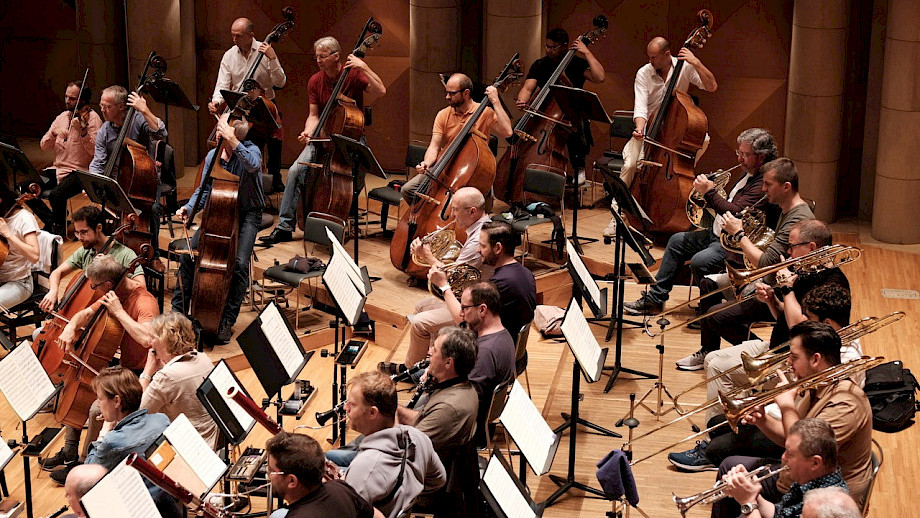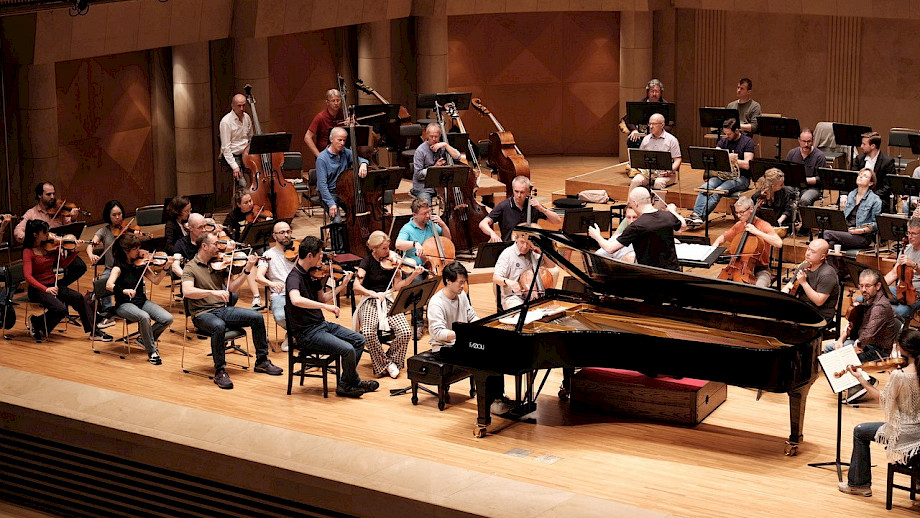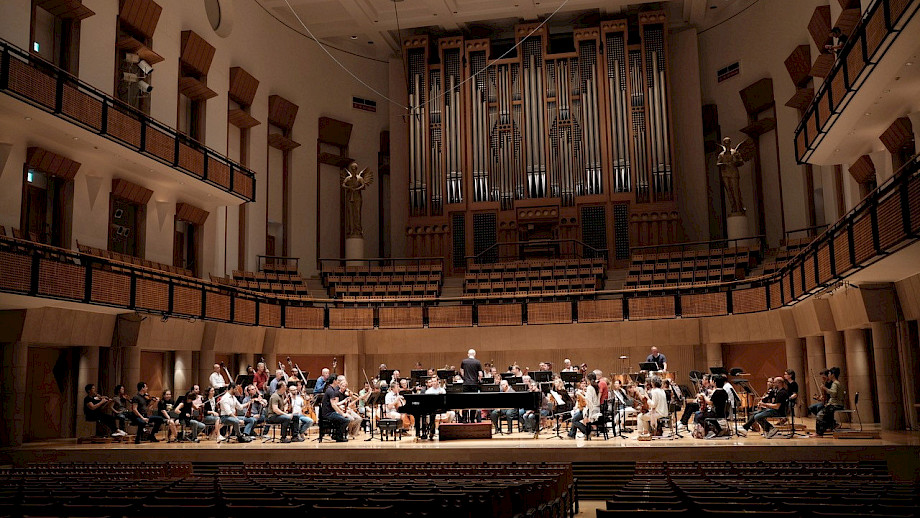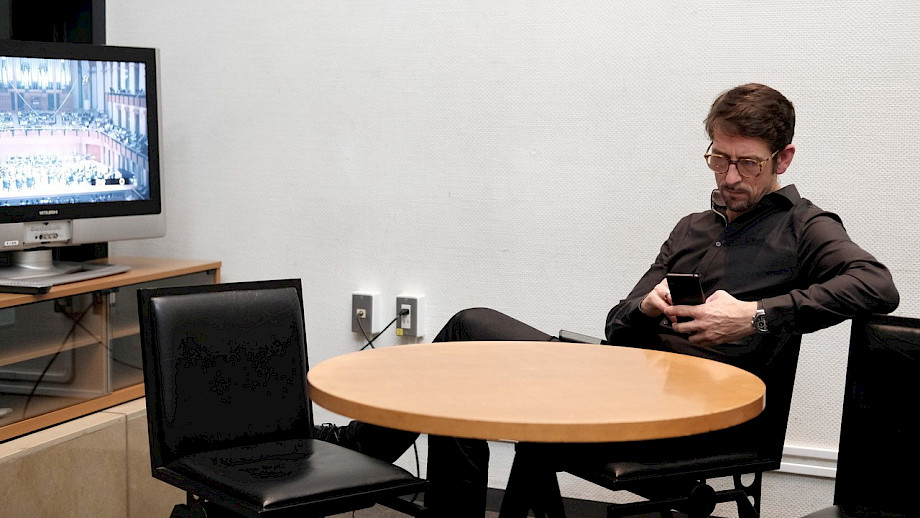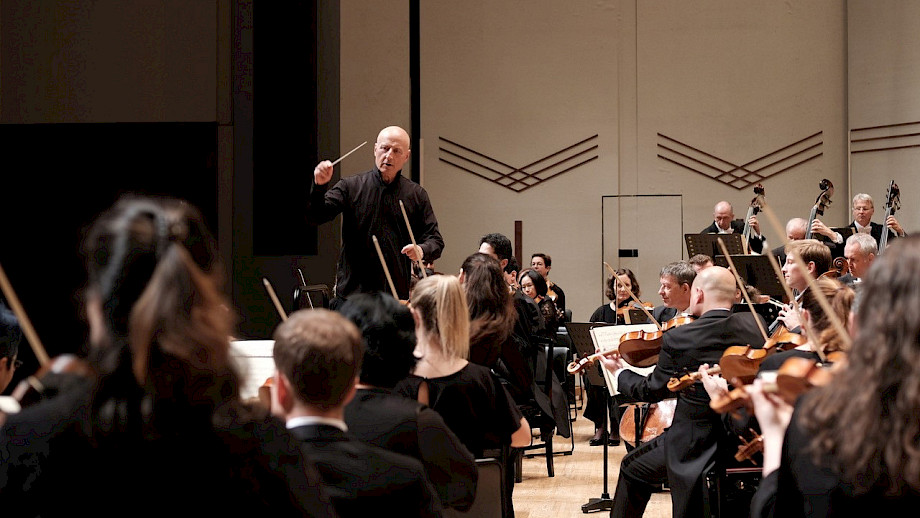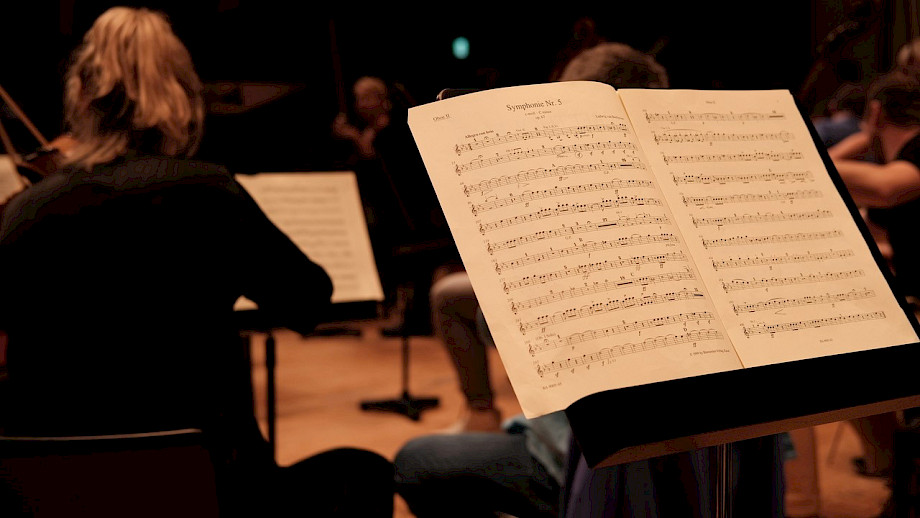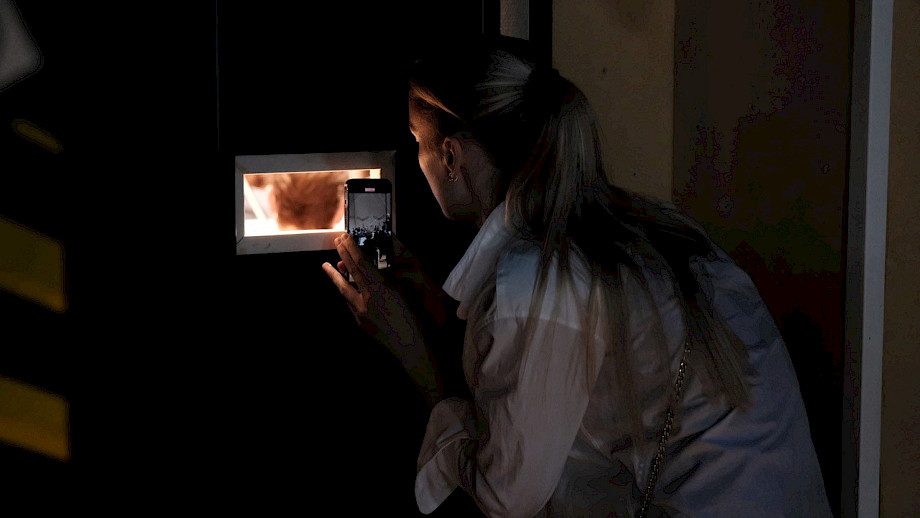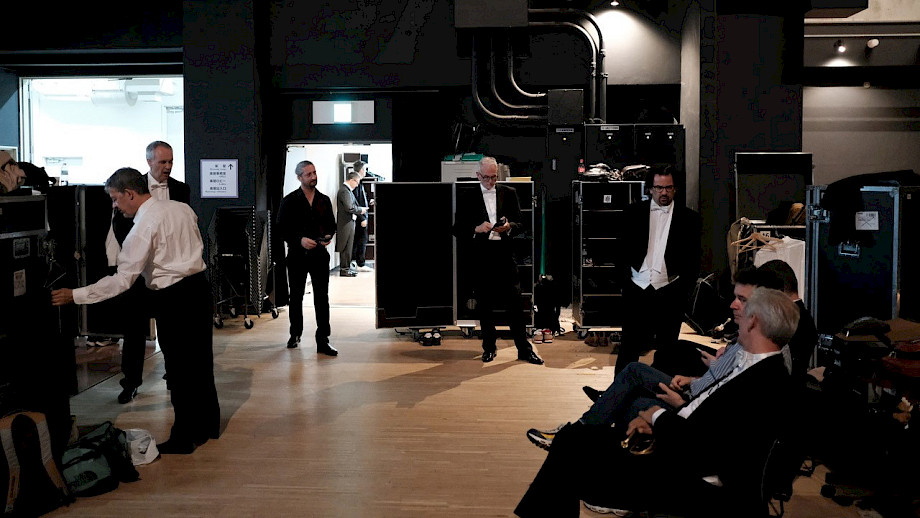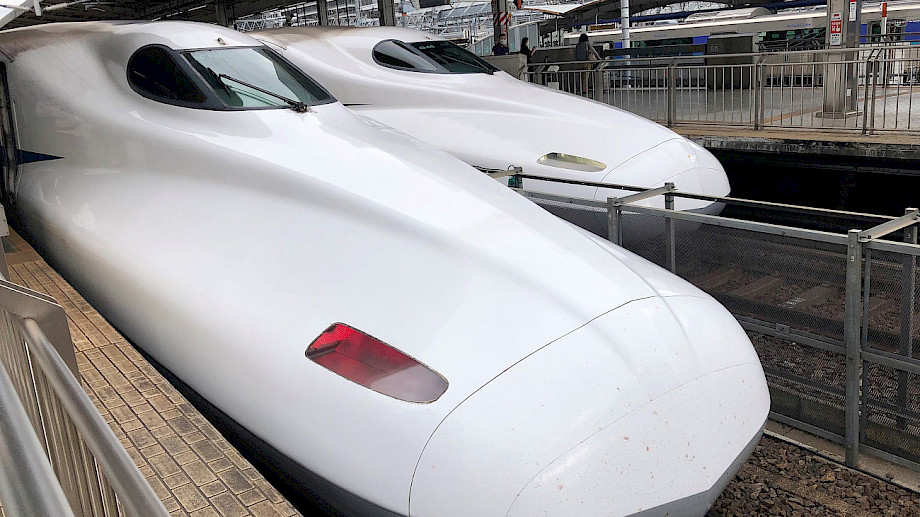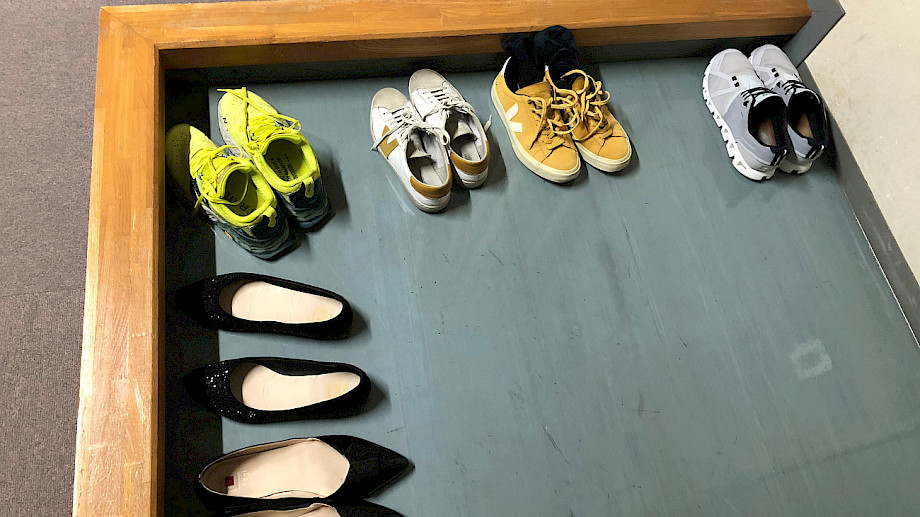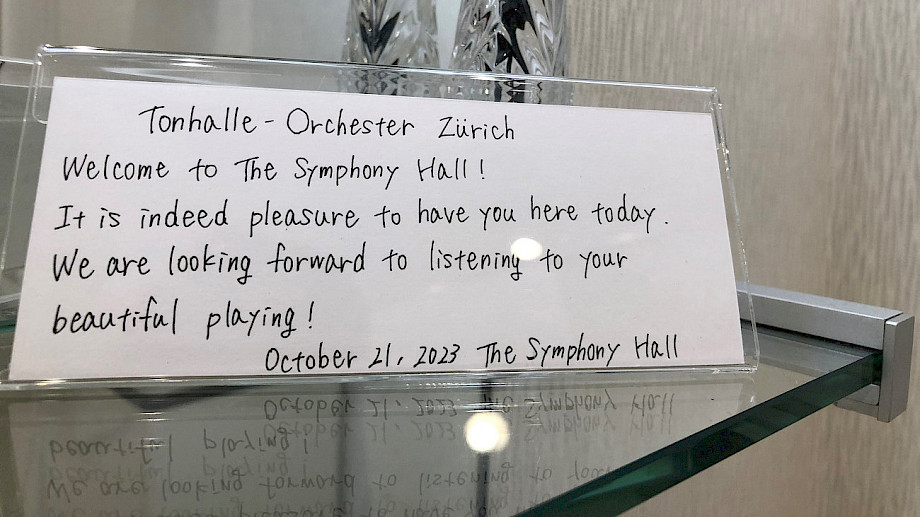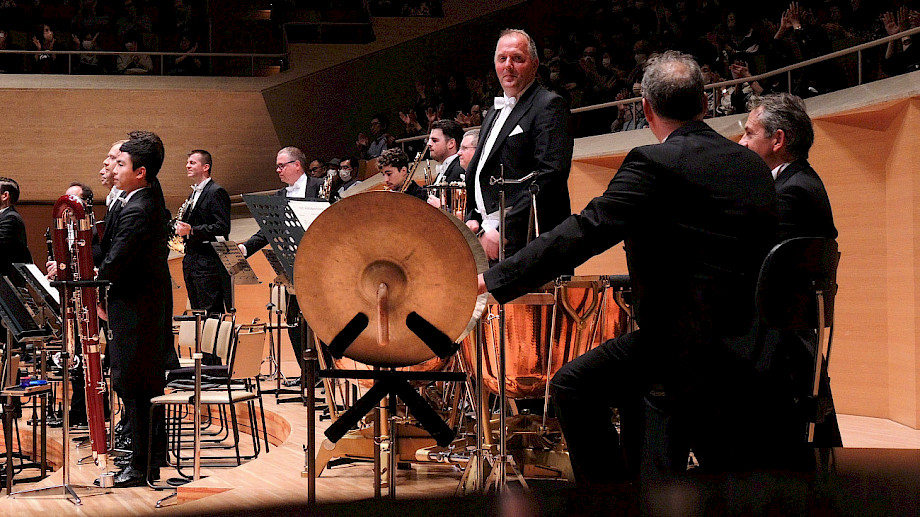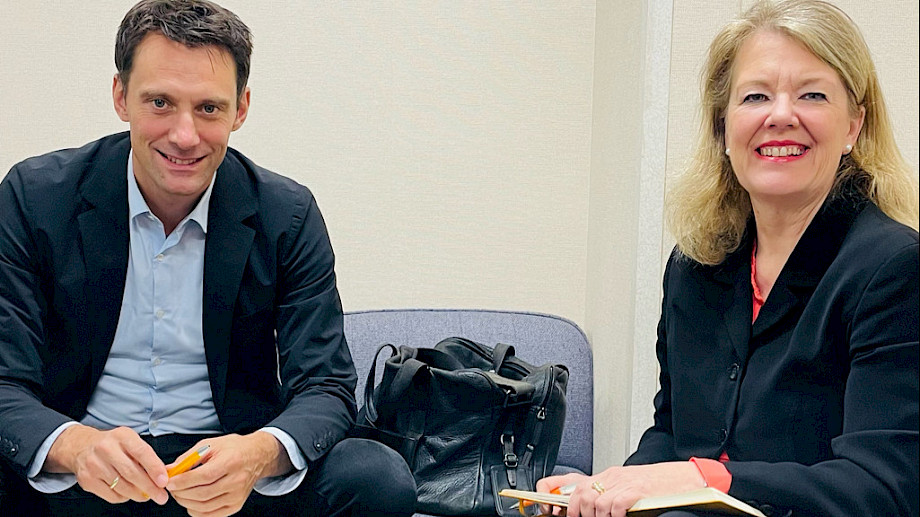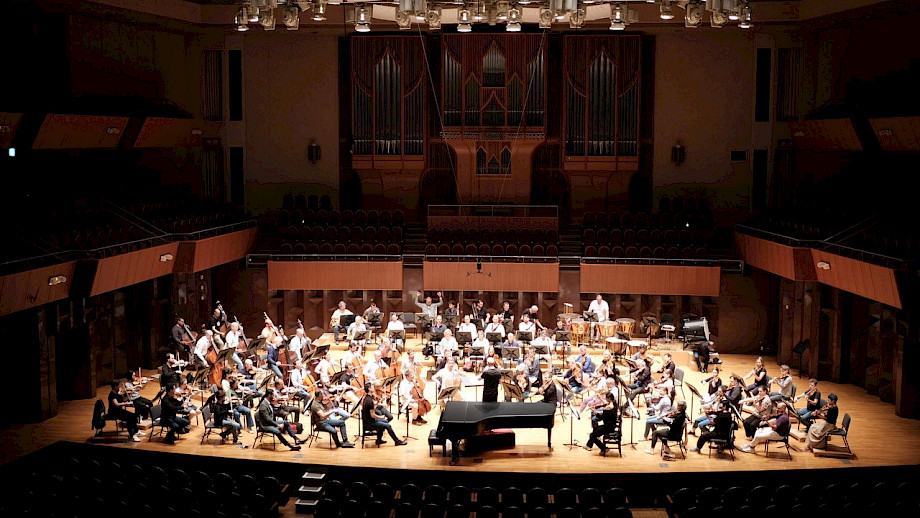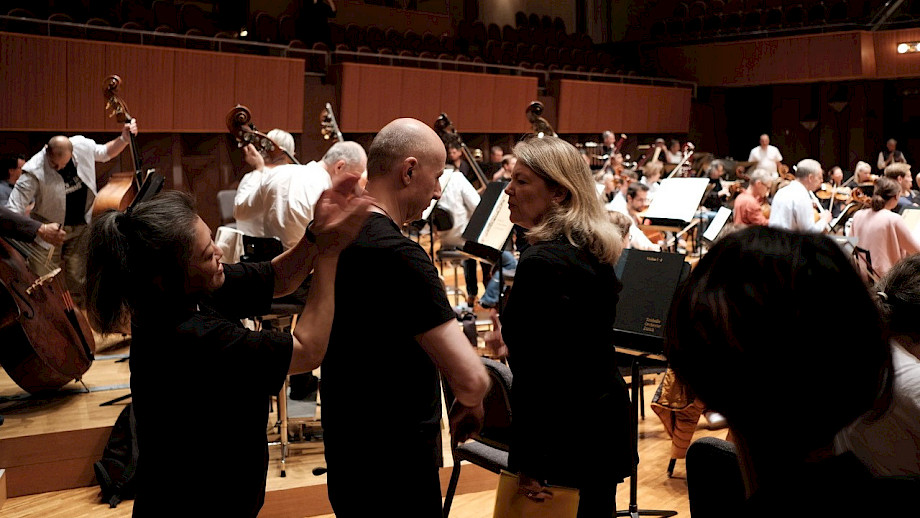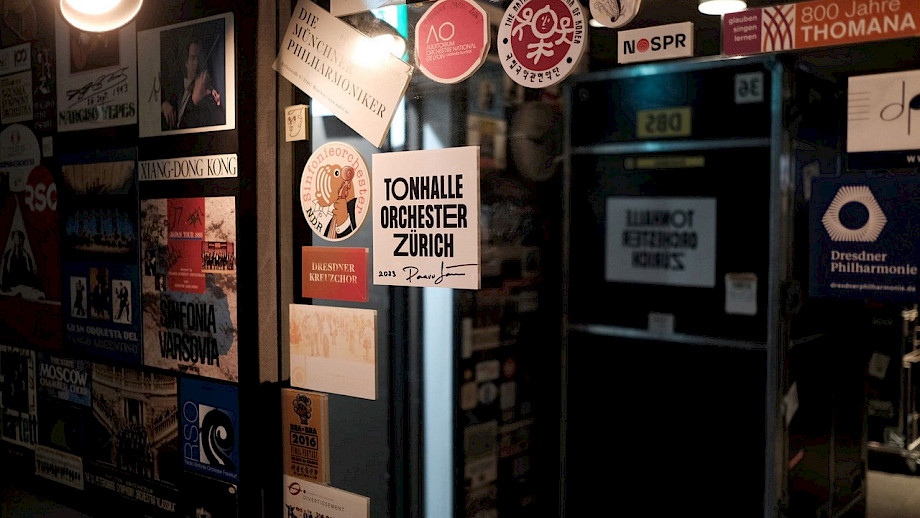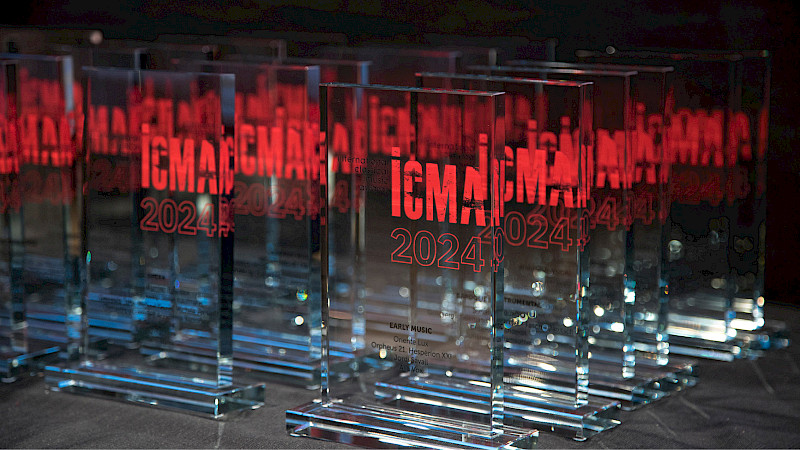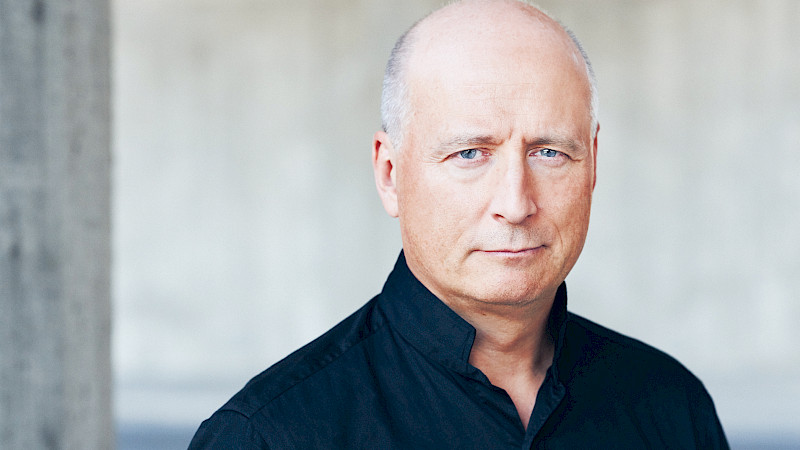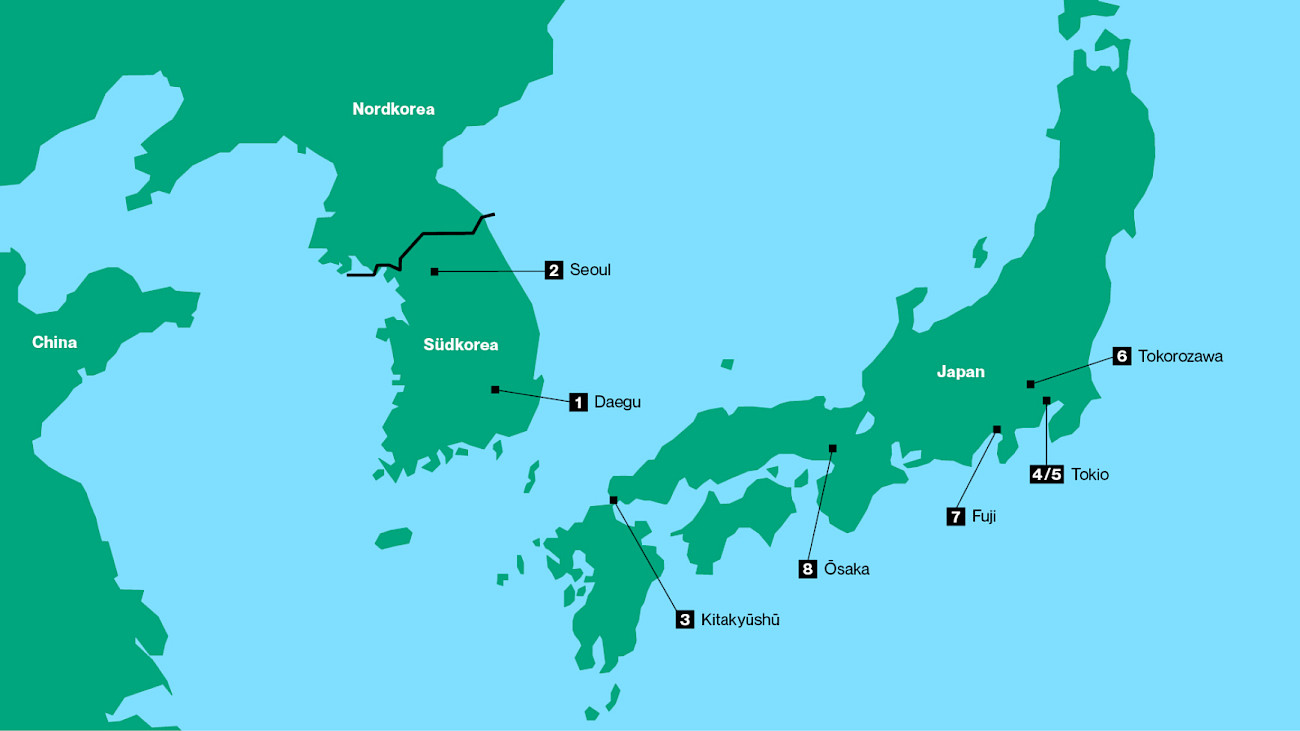
This is what our Asia tour was like
From 12 to 21 October 2023, the Tonhalle-Orchester Zürich and Paavo Järvi were on tour in Asia. Find out what we experienced there here in the blog.
91 musicians, one conductor, one assistant conductor, two soloists, one tour doctor, three orchestra technicians and five fellow travellers from the management were on tour in South Korea and Japan. We played the two concerts in South Korea with Bomsori Kim, and Bruce Liu accompanied us at the six concerts in Japan.
Michaela Braun, Head of Marketing and Communication, and Ulrike Schumann-Gloster, 2nd violin, report what they experienced on the tour:
Friday, 6 October 2023 – Asia, here we come!
Two concerts in South Korea, six concerts in Japan: our musicians and Paavo Järvi have a lot planned for October. It's the orchestra's first tour of Asia in five years, and the anticipation is as great as the pre-trip hectic. Are all the visas ready? Does everyone know who has to take what with them, organise it and clarify it with the local partners? While the orchestra is still putting the finishing touches to the works in the tour programme in Zurich concerts, the orchestra technicians are already preparing the containers for transporting the instruments.
You can read about what it will be like when they are all actually on the road here in our tour blog. Until it starts, we are reminiscing with the tour film of the last Asia tour ...

Wednesday, 11 October 2023 – South Korea
First stop: South Korea. Here we will perform two concerts with the South Korean violinist Bomsori Kim. What role does classical music play in South Korea? Michaela Braun asked around.
First K-Pop, now K-Classic
First there was K-Pop with cult bands like BTS or Blackpink, now there is K-Classic: a phenomenon that is bringing a lot of young fans to the classical music scene in South Korea and filling the halls. K-Classic stands for classical music interpreted by Korean musicians.
The soloists' stage presence, perfect photography and appearance play an important role, along with fan clubs that travel with them and, of course, a lot of social media: All this leads to enthusiasm among young people and the desire to attend concerts and experience the stars live. Because socially, people want to belong. But a visit to a concert can also be a status symbol, for example on a first date – the man has style, he knows his stuff and takes the woman he wants to conquer to the concert. After attending the first, second or third concert, one becomes a fan of classical music and thus goes to concerts regularly. Simple really.
A sacred place
Social media plays an important role and boosts ticket sales. This in turn leads to an increased demand for concerts and indirectly promotes the construction of new concert halls. Investment in culture is important to the state. It probably also has to do with how the country wants to be perceived. Not only very large halls with wonderful acoustics and infrastructure are being built, but also smaller halls - suitable for chamber music. "Chamber music is still dormant, the large halls are more popular, but more and more the intimate setting of a chamber music concert is appreciated," says Seung-Yeun Huh, a native of South Korea, who is also active in chamber music with SonusArts Music Management in South Korea with the Huh Trio.
Being close also counts in South Korea. And yet the big stage still has something magical for concertgoers. It seems almost like a sacred place. Bringing artists on stage after the concert is not done in South Korea. Photos, selfies on stage after the concerts, that's not possible either. And certainly not in the auditorium. The laser pointers of the auditorium staff are immediately directed at those who do not comply. A format like our tonhalleLATE would probably come close to desecrating the hall.
And where does the love and enthusiasm for classical music come from?
Children start early with western musical education. "Those who don't start at the age of three, as I did back then, do so at the latest at the age of five, when he or she starts school," says Seung-Yeun Huh, who is also prorector at Musikschule Konservatorium Zürich. A good musical education is also important in Korean society, whether one is dancing ballet or making music. Almost everyone can read music, and every fourth child plays an instrument. A lot of diligence and ambition are associated with it. The rather Western attitude of "do it and see" does not correspond to Korean culture. When you start something, you want to show performance.
In the past, more students came to Europe for education, but today the country itself has very good educational institutions. The majority of the costs are borne by the parents. There are foundations that give money, but it remains a family project. And so it is not surprising that more and more South Korean soloists are entering European stages and making a career here. Showing what they can do is in their DNA, so to speak.
It was not until the 1990s that South Korea developed into a touring destination. At that time, European orchestras were increasingly invited. South Korean soloists were given the opportunity to perform with these orchestras. At first, people were curious about which orchestras were coming from abroad, but as time went on, enthusiasm set in. If you take a look at the programme for October and November, you will soon realise that the big orchestras are all over the place. We are among them again this year, on 12 October in Daegu and on 13 October in Seoul.
Translated with DeepL.com
Thursday, 12 October 2023 – South Korea
Today we arrived in Daegu, where we will play our first concert. In South Korea we are well looked after by our concert promoter Vincero. Michaela Braun learned more about its success story in the international touring business.
International orchestras as guests
Vincero is one of the big players in South Korea and brings up to twelve top orchestras from Europe and the USA to the country every year. The staff constantly encounter different cultures in their work. So it's not surprising that Vincero was inspired by a major global event for the company name: the concert of The Three Tenors, which was played at the 1990 World Cup in Rome.
Even when orchestras come from Europe, they differ, for example in the choice of hotels, the food Vincero prepares for the guests on the backstage or whether one wants WiFi. Also in terms of communication beforehand, some orchestra managers want to know everything and others just let it come to them. And then there are the differences in departure times: on time or sometime.
After Corona
JL, who now runs Vincero, previously managed a restaurant in Hong Kong. When his father, who set up the agency in 1995, retired, he took over. JL is not only a manager, he also learned the piano and the flute. Shortly after he started, Corona came and everything was different in South Korea, too. Today, JL knows even more how important his work is. He sees himself as a bridge builder between the audience and the orchestra, because both need each other, and they need each other live. He also acts as a mediator for the young Korean soloists, because he gives them the opportunity to perform with the great orchestras from all over the world.
My colleague Marc Barwisch, who heads artistic operations at the Tonhalle-Gesellschaft Zürich, held initial talks in 2018 for this tour, which was originally scheduled for 2021 but then postponed to 2023 due to Corona. Now we are here and it can finally start: tonight with our first concert in Daegu and tomorrow in the capital Seoul.
Saturday, 14 October 2023 – Daegu & Seoul
Two concerts in two cities, lots of love and sweets from the audience, plus a full pub to celebrate a birthday party. Here are the impressions shared by our musician Ulrike Schumann-Gloster from South Korea.
Homely sound in the hotel
A hearty "Hello", dear readers, from Korea! As an orchestra, we are happy to be able to experience travelling and, above all, performing in the hotspots of the international classical music scene again after the restrictive Corona times. As a body of sound, we face different acoustic conditions in this situation, creating a lively and creative process that inspires us artistically and illuminates the core of our sonic identity.
The first important point on site is the arrival of our instruments. This is essential, because only a few players are allowed to carry their instruments as hand luggage on the plane. The transport process is professionally managed and accompanied by our in-house team of orchestra technicians, complemented by Oliver, our "man on the spot". He is our logistics manager for Korea, responsible for all pending customs clearances and contacts with customs authorities at the airports. This gives him an important and demanding task. His work and our cooperation with him for the course of the tour enable smooth travel procedures and timings. The precise execution of specifications such as the removal of accessories for string instruments (rosin) or valve oil for brass instruments are very crucial.
Since we are allowed to pick up our instruments directly in front of the hotel without any damage, it is possible for all players of smaller instruments to practise. In the hotel, this results in a homely sound on all floors. The day is also used for resting, to overcome the time difference a bit and to do some sightseeing in this diverse and very colourful, lively city, or to spend time in the gym on the top floor of the hotel with a view over Seoul. One of the most complex challenges on tour: our meals. It happens that you wake up or lie awake at night and then feel very hungry. You have to be prepared for these situations. Sometimes the shelves for convenience food in a hotel lobby help us. After all, we want to deliver top quality, even though we are all going through a change in our sleep and wake rhythms and thus also in our diet. That calls for creativity! And it's not surprising that some clever colleagues have brought some snacks as a reserve with them from Switzerland.
Bravos like at the tonhalleLATE
The first concert in Daegu is already upon us: We arrive by bus and train at the hall, which was built in 2018 and has bright, clear acoustics. Already during the rehearsal, it is clear that soloist Bomsori Kim feels audibly and visibly at ease. Accompanied and cheered by her fans, she is greeted with thunderous applause. It's a tonhalleLATE feeling like in Zurich for everyone on stage – lively and enthusiastic! This atmosphere also carries us through the second half of the concert evening. Our music director Paavo Järvi performs Beethoven with his usual speed and spontaneity, and everyone gives their best with great concentration and to the point.
On the long journey back to Seoul, we taste the sweets that fans have spontaneously distributed to us orchestra members after the concert. A great tradition and for us Europeans unusual and very welcome!
We play the second concert directly in Seoul the following day. A different daily routine and the once again unfamiliar acoustics make for a new experience: an enthusiastic audience that is very concentrated at first and then breaks out into frenetic cheering. We are struck by the immediacy of the bravos. Some of them ring out so immediately subito in the silence after the last chord, as if there were a competition to see who can shout the fastest and most originally. After this concert, colleagues whose birthdays fall during the time in Korea have surprisingly organised a party. The location is super chosen. The owner of Kathy's Pub welcomes us very warmly, he seems original and funny, just typically Korean. Visibly grateful, he begins by telling us that Paavo Järvi was instrumental in the pub's survival during the Corona era. During a longer residency, he regularly came by with his entire orchestra from Pärnu.
It is a long, fun evening and our farewell to Korea. The start in Asia is a success. We are already on our way to Fukuoka/Kitakyushu, the southernmost island of the Japanese archipelago.
Monday, 16 October 2023 – Kitakyushu
In the meantime, the orchestra has arrived in Japan and has already played its first concert in Kitakyushu. Michaela Braun spoke with Mari Parz. The Japanese musician has been playing among the second violins with the Tonhalle-Orchester Zürich since 2008 – at home she talks about half her life in Europe.
A guest in her home country
Before Mari Parz joined the Tonhalle-Orchester Zürich, she had studied and lived in Vienna for 10 years. The start in Vienna was a cold one. In her eyes, the two cultures function very differently. For example, she calls the pork roast at the Heuriger in Austria, compared to sushi in Japan in a restaurant. Austrian desserts were also a discovery, as was cheese. And for Mari Parz, a painting by Klimt is filled to the brim with colour compared to many paintings by Japanese artists, which in her opinion seem very empty. The very full and lush versus the very reduced. And that is why she believes that music history could have been created in Vienna and not in Japan, where everything is well-considered, less impulsive and concentrated on the essentials. "Music is energy and emotion, that simply fits better into the European tradition."
After studying in Osaka, she wanted to continue her studies in Vienna, for her the city of music and composers. First, however, she had to invest the first year in the German language. And that was not so easy. She also missed part of her homeland; in 1998, there weren't many Japanese restaurants or shops in Vienna selling the spices she needed for cooking. So she sometimes had fish fingers with rice at home to get as close as possible to the food culture of her homeland. Today, none of that is an issue any more. Nevertheless, even after more than 25 years in Europe, her cooking still has a Japanese touch. Lots of vegetables, tofu and fish.
Heidi in Japan and Murakami in Switzerland
Before joining the Tonhalle-Orchester Zürich, she played in the Vienna Chamber Orchestra and the Radio Symphony Orchestra of the ORF. The move to Zurich turned out to be much easier than the one to Vienna. She almost finds that Zurich has something Japanese about it – the people are more reserved and polite.
She has settled in very well. In the meantime, she has learned to ski and goes hiking. Two leisure activities that are not necessarily pursued in Japan. For her, however, globalisation also has something positive. Elements of Japanese culture are now regularly encountered in Europe. Books by Japanese authors like Haruki Murakami or exhibitions by artists like Yayoi Kusama, for example, are present. Japanese mangas have also been popular in Europe for years. However, she never thought when she saw the cartoon series "Heidi" as a child that she would one day live in Switzerland.
Travelling to Japan with an orchestra is very different from doing it alone. On her own, she is totally Japanese again from the first second. When she's on tour in Japan with the orchestra, she doesn't completely shed the European look. She has spent more time living in Europe than in Japan. "I feel multiple," she says with a charming Austrian accent and laughs.
Wednesday, 18 October 2023 – Tokio
Yukiko Ishibashi has been playing first violin in the Tonhalle-Orchester Zürich since 2002. Now the Japanese is on tour in her old home country and talked to Michaela Braun about her life in Europe.
Someday she'll go back to Japan
Yukiko Ishibashi came to Lübeck to study at the age of 21. She had a soloist's diploma from the Tokyo Conservatory in her pocket and wanted to continue her studies. Lübeck offered her this opportunity at that time, and not only that: also visits to discos, enjoying life and spending time with friends. In Japan, there had only been music and practise, practise, practise for her. This first time in Europe opened her eyes. Although she describes herself as rather shy and didn't speak German very well at the time, she got to know a new freedom in Lübeck.
Yukiko stayed in Lübeck for three years with one interruption. She liked the lessons, despite the new technique she had to learn. As a result, her elbow suffered and she had to take a break for a while. She commuted from Lübeck to Winterthur and also took lessons there during the three years. So she already had one foot in Switzerland.
At the Tonhalle-Orchester Zürich, she started as a trainee and then won the audition for the first violins. Although she has done nothing but play the violin for decades, it still fills her with passion every day, Yukiko says. She plays for hours. Her children are sometimes surprised that mama doesn't get bored. She has to smile herself as she tells the story.
She lives happily in Zurich with her family. She regularly meets her Japanese friends, also to speak Japanese. People express themselves differently in their mother tongue, Yukiko says. She is happy that her Swiss husband has intensively studied the Japanese language and culture. And so they both want to live in Japan after they retire.
but back to practising. Yukiko plays with her colleague Ursula Sarnthein in the trio Oreade. There she can play on a Stradivarius that has been made available to her. The Habisreutinger Foundation lent it to her. This fact makes her very happy and inspires her, says Yukiko.
And when she has some time, Yukiko travels back to Osaka at least once a year. It is fortunate that the Tonhalle-Orchester Zürich will also be a guest there.
Thursday, 19 October 2023 – Tokyo
The orchestra spent three days in Tokyo. Ulrike Schumann-Gloster reports why she wants to plan the next flight to this city that attracts her so much with its almost endless possibilities.
Tokyo again and again
After taking off from Kitakyushu with our pianist Bruce Liu, we travel towards Tokyo at the beginning of the week. We experience a dreamlike landing approach over the sun-drenched sea surface, shortly before we see Mount Fuji and later Tokyo from the air. Simply unbelievable!
At the airport everything runs like clockwork, nothing is left to chance. This enormous precision will accompany us and hopefully help us to efficiently manage the tight schedule ahead of us.
One hour lies before the departure to the hall. Once again, speed is of the essence in finding a meal that is as warm as possible. And so I suddenly find myself with two colleagues in a queue with a buzzer, waiting for a portion of ramen, the well-known Japanese noodle dish. Luckily, the Japanese speed and the extremely high reliability help us here, too.
After a short rehearsal in the world-famous Suntory Hall, with its fine yet warm acoustics, we are ready for the concert. The design of the stage allows for an enormously lively communication between all participants. It is great fun to play here and allows us to react in an excellent way. It is a communal experience that our audience appreciates, even long after the orchestra has left the stage. Paavo Järvi is celebrated and clearly enjoys being here again after his years as music director of the NHK Symphony Orchestra. After the concert, many of his colleagues swarmed into Tokyo at night and enjoyed a wide range of entertainment, from karaoke to darts, in the lively Roppongi district or in the hotel bar.
Cooking, geishas and the Swiss flag just for us
Between the two concerts in the Suntory Hall, we have a well-deserved free day in this incredibly diverse city. One of the largest metropolises in the world, plus an orchestra full of creative people, makes for a fantastic prism of possibilities and options to shape this freedom. The variations range from visiting local friends, hiking in a nearby area, buying instruments and accessories, sightseeing, training in Japanese cooking or visiting the Ghibli animation studios, to experiencing an ATP tennis tournament currently taking place here. Our diversity is a treasure trove of ideas, which is once again clearly demonstrated here.
The evening holds a tour of Tokyo Bay by boat. Our Japanese orchestra colleague from the second violins, Mari Parz, has already organised this event for part of the orchestra from Zurich. Even two people who have mastered the famous art of geisha will accompany our excursion. The singing, which is rather unusual for our ears, combined with very slow, focused movements, results in an elegant, suggestive choreography, impressive and rather melancholic in its effect.
At the end of the tour of lights, there is a drinking game and we marvel at the responsiveness of the string colleagues, among them our former solo cellists, Thomas Grossenbacher, star guest on this tour.
Before the start of the second concert the next day, I have the opportunity to stroll briefly through Karajan Square in front of the hall and discover that they have even hoisted a Swiss flag for us! A great moment that gives the feeling: we are right in the middle of things and offer a facet to the enormously diverse cultural life of the musical world stage.
Jazz and chess as encores
The concert evening turns out to be a brilliant performance for our soloist Bruce Liu with Rachmaninov's Second Piano Concerto. Afterwards, as a thank you to the applauding audience, he captivates them with, among other things, a jazz version of Beethoven's hit "Für Elise". Very successful and fresh.
At the soloist's express wish, a game of blitz chess takes place backstage during the concert break. Our bassist Oliver Corchia, as challenger and prominent representative of our in-house chess team, takes it easy and decides the game confidently in his favour, although he had obviously shown the younger playing partner a few chances on the advice of his watching (bass) colleagues.
In the second part of the concert, our Beethoven symphony followed on from the first with great joy and spontaneity, and we succeeded in inspiring the audience with our energy and verve.
My summary of three days in Tokyo is simple: it would be great to return here. Hopefully that will be possible to experience this infinite city even more intensively.
Friday, 20 October 2023 – Tokorozawa
Arrived in Tokorozawa, Michaela Braun had an exchange with our three orchestra technicians who are in charge of the tour: Friedemann Dürrschnabel, Matthias Lehmann and Martin Kozel about the meticulous planning that is necessary to ensure that everything goes smoothly on the road.
Everything in time
The colleagues from the orchestra's technical department have been planning the details of the tour for months, and the closer it gets, the more closely everything is timed. Despite all the advance planning, many details are only clear a few weeks before departure: for example, the rehearsal times or the final stage instructions at the respective venue.
The orchestra technical team generally deals with basic questions about the cargo, cast sizes for the works, what is packed where and how, the overall cargo volume. The weight of the cargo plays a role here, because it always has an impact on the budget. Nothing is left to chance here. In addition, during the preparation phase, the cases (in which the instruments are transported) have to be checked for their condition - the inner workings have to be brought up to scratch, so to speak. "The new cases, donated by the Friends of the Orchestra, have helped to reduce the volume of freight," says Friedemann Dürrschnabel, Head of Orchestra Technology.
No deodorant too much
A lot of paperwork awaits the colleagues before a tour, so accuracy is required. Even with the forms one submits to the Chamber of Commerce, of which there is only one original and on which hopefully every stamp is placed in exactly the right place. If this is not the case, it is considered a breach of the rules, which can cost not only time but also money in the worst case, namely if the flight is missed. Then it becomes really expensive.
If all the stamps are correctly affixed, there is a ritual of loading the instruments that can take up to nine hours. Nine hours in which a good five tonnes of material are prepared for departure. A sniffer dog searches for explosives, prohibited liquids in the cases are detected by the scanner. It is crucial that all musicians behave according to Matthias Lehmann's instructions. One too many deodorants can mean that the border control officers start the whole check all over again and the flight could well be missed. But the discipline on the part of the orchestra is very high, everyone is very aware of their responsibility, as Friedemann Dürrschnabel says.
Invisible helping hands
Once all the boxes are in order, they are bundled according to measurements so that everything fits on the pallets. Everything is packed weatherproof, also to keep the temperature, secured with straps, foil, thermocovers, plastic and a net around it, so that the freight keeps for nineteen or twenty hours at twenty-two degrees.
Everything worked out perfectly on this tour, and so the instruments arrived intact in South Korea and then in Japan.
Once the tour has started, the work on site continues for the colleagues. Many helpers, so-called "stage hands", are at their side for the stage set-up as well as the dismantling. "The helpers are perfectly prepared, work at a very high level, you can rely on them," says Martin Kozel, the third member of the team. A prerequisite that one would also wish for at home. No one makes a mistake here, it has to do with losing face. The stage manager watches over all the helpers. She is looking after us for the fourth time in Japan.
The function of the orchestra technicians on stage is totally different from at home. They have to be invisible to the audience. The stage is reserved for the artists. The lower esteem has to do with hierarchical issues, that's just the way it is, says Friedemann Dürrschnabel. And so the stage is only cleared when the last person has left the hall. But then it's a rush. In a quarter of an hour the stage is empty.
And what about the Basler Läckerli?.Almost all eaten, say the three.
Sunday, 22 October 2023 – Fuji and Osaka
At the end of the tour, the orchestra played in Fuji and Osaka. Whereby the closely timed journey between the cities was also a challenge, as violinist Ulrike Schumann-Gloster writes.
Top performance under sometimes extreme conditions
Despite or perhaps because of its cultural distance from us, Japan is always very inspiring and exciting to travel to. This time, in the tension between tourist moments and work, we experienced places and halls on the two main southern islands. Many interesting insights into the Japanese mentality with all its contradictions were possible. These contrasts create a force field from which I explain the tirelessness, the enormously high work ethic and the great team spirit, but also the lightness and playfulness that are inherent in this culture. Here, the individual largely takes a back seat to the team. Even though, as in any society, it is certainly not possible without outstanding individual achievements. This has many similarities with our work as an orchestra and together they form a large whole, an elastic organism. Respect for each other, trust, flexibility, appreciation and a high demand on ourselves and our individual contribution are also what we depend on in our professional everyday life.
Perhaps it is partly due to these analogies that the admiration for classical music is so great in Japan? Although the historical roots are more to be found in Europe. The more important aspect is the universal expressiveness of our music and its powerful, emotional directness, which all people in the world can perceive and understand regardless of their cultural background.
Three times Shinkansen
Behind us lie an intense seven days in Japan, six concerts and five different halls. A lot of time together in buses, queues, trains, hotels and restaurants. All in all, a bonding, communicative experience for our community, as long as everyone can withstand the totality of the challenges we face in the meantime. It requires discipline, tolerance and also an eye for the neighbour from each individual. At this point, special thanks go to our tour doctor Dr. Michel Trösch, who actively supported us on the entire journey!
Our last tour day was very tightly timed. It required logistical precision and the most precise preparation from everyone. Very early in the morning, some colleagues started in Fuji in the thermal bath on the top floor of the wonderful hotel, which consists of a successful mixture of traditional Japanese elements and modern architecture (with a view of Mount Fuji). A short time later, we caught the first of three Shinkansen trains that carried us that day. Less than 30 minutes before the start of the dress rehearsal, so super close, we arrived at the Osaka Symphony Hall and were warmly welcomed. Even the toilets had signs welcoming us in English. Wow, here again you can feel the almost reverent, devoted veneration that is shown to classical music in Japan. Already at 3 pm we played our last concert of the tour. At the beginning of the pre-rehearsal, Ilona Schmiel enthusiastically and happily informed us that they were already planning a return. A great prospect!
A Swiss organ in Osaka
The hall is wonderful, with a warm atmosphere and a Swiss Kuhn organ in the gallery. A homely detail! The concert felt like a sweeping finale, mobilising all the last reserves on our part; and this in spite of the previous exertions and those still ahead of us. Bruce Liu was again surrounded and cheered by a long line of fans right in the front row - first for Rachmaninoff and then for two wonderful encores by Bach and Chopin. Our Brahms symphony felt a little quieter (no doubt due to general fatigue) with many luminous moments. For the last time for now, we also experienced the remarkably obedient applause culture. After initial euphoric cheers, all hands fell silent again subito when Paavo Järvi briefly turned to the audience before the encore. We had already experienced this the night before in Fuji and admired the enormous responsiveness of the people. There too, there was a standing ovation for the orchestra.
Individual applause with a crescent moon
A very special highlight of the reverence for the classical music scene was still to come when we left the building for the station. Like a pop star, every single musician was celebrated on the way out and bid farewell with hearty applause - accompanied by a dreamlike evening sky and an already rising half moon opposite. Once again, we had to be super fast, as we had to catch a Shinkansen to Shinagawa and then travel back to Tokyo by bus. I would like to emphasise the enormous professionalism of all the orchestra colleagues under this extreme time pressure! After arriving at the hotel, a few of us sit together until late at night to let the tour come to an end, before we all leave the next morning for the longed-for journey home by plane.
Monday, 23 October 2023 – Osaka
Touring continues to be important for the Tonhalle-Orchester Zürich in building its reputation worldwide. The good news now is that organisers in South Korea and Japan have expressed great interest in inviting the orchestra back in the next two to three years. So time for a résumé. Michaela Braun talked to the artistic director Ilona Schmiel and Marc Barwisch, head of artistic operations in Osaka.
Moments of longing
The fact that classical music is popular in Japan today has to do, among other things, with the fact that school music lessons were completely converted to Western music after the Second World War. Children learn violin and piano instead of sho and shakuhachi. And Beethoven's Ninth is something like the secret national anthem and often the centrepiece of a Japanese New Year's Eve gala. The Japanese love German and Austrian classical music above all. It has an emotional effect on them, and since everyday life is rather regimented, it probably creates moments of longing.
All this together is probably one reason why many orchestras, especially from Europe, tour here in October and November. in 2023, 23 orchestras from abroad will be touring Japan, more than ten top orchestras will be on the road in October and November - among them the Vienna Philharmonic, the Berlin Philharmonic, the Royal Concertgebouw or the Munich Philharmonic. In addition, there are 33 professional orchestras in Japan itself, many new venues, with Suntory Hall in Tokyo, which opened in 1986, still leading the way. If you have the time and the inclination, you can rent a flat in Tokyo at this time and enjoy the showcase of the world's best orchestras.
We were in Japan for the first time in 1985 with Christoph Eschenbach; the current tour was the seventh in this country. Since yesterday it has been history – and my two colleagues Ilona Schmiel and Marc Barwisch are already back at the negotiating table for future tours.
Fans without end
Because the concerts were a complete success. That's not a matter of course: here the subject of corona has almost been forgotten, but in Japan masks were still compulsory until the summer. You still see a lot of masks at the concerts – but that was already the case before Corona. The audience is still hesitant, but they come and are also enthusiastic about our concerts.
They show their enthusiasm in a completely different way than we are used to with the local audience. The most spectacular is probably when the orchestra has already left the stage and Paavo Järvi is brought back again with loud applause. Or then there are often hundreds of fans who want a signature - usually on the CDs they have just bought. It is very charming and extremely respectful how they treat everyone on stage. It's almost cult status that the musicians enjoy here.
What does the market want?
Back to business: our artistic director Ilona Schmiel says quite clearly that the market has changed. It is no longer so easy for local organisers to invite foreign orchestras. The weak yen in particular is causing problems, and the increased hotel and travel costs are not making the situation any easier. "For future tours, we now have to think very clearly about how we can differentiate ourselves from other orchestras in terms of content and also coordinate with them who is present on the market with what content," says Ilona Schmiel. Because when you take a closer look, you see: the programmes don't differ much. German-speaking orchestras bring the German repertoire to Japan, the French French music; the Oslo Philharmonic with Klaus Mäkelä was on tour with Scandinavian music parallel to us.
And yet not all Beethoven is the same or all Mahler is the same, explains Marc Barwisch, Head of Artistic Operations. A Beethoven 5th or the "Eroica" works, but the "Pastorale" does not. Mahler 5 is also popular, but the Ninth is too much about death. A tightrope walk, then. This reduces the repertoire of European orchestras to about 20 programmes that are doing well. Because the organiser has to do the maths with himself: He receives no subsidies, and if he even resells the concerts outside Tokyo, as in our case, he has to make sure that the programmes are popular and that the halls can be filled. There is almost no room for 20th century repertoire. No one wants to take that risk.
It is quite clear to us that with Paavo Järvi, we have a drawing card. Our music director was chief conductor of the NHK Symphony Orchestra in Tokyo for seven years and knows the country and its customs. And he is revered, the concerts were sold well to very well, sold out three times.
What next?
Our organiser Ryoko Yamada knows the European needs very well. She travels to Europe regularly, listens to a lot and thus has an understanding for our wish to open up our programme. "She is very committed to this market and now has an enormous standing. She acts far and wide as the only woman in the position of Managing Director," says Ilona Schmiel. Ryoko Yamada presents many young soloists, including our soloist on this tour, Bruce Liu, who won the International Chopin Competition. According to Ilona Schmiel, competitions are still very important and credible in Japan. Therefore, they are a good basis for foreign young artists to make their debut in this market. Together, of course, with a big orchestral player from the West.
And what are the plans for Asia or the Asian market? "It's really difficult to assess," says Marc Barwisch. "A lot of certainties in the planning are just falling away." China is extremely fragile at the moment, and how the situation in Taiwan will look in two or three years is completely open; there has already been talk of the problems with the weak yen in Japan. Only South Korea has potential. And how it would be financially feasible for both sides is hardly foreseeable at the moment; politically unstable situations make the whole thing even more difficult, Ilona Schmiel continues. Now they are analysing the two weeks in South Korea and Japan first and then looking confidently to the future. The talks held on site were positive. Financial support is being sought immediately.




